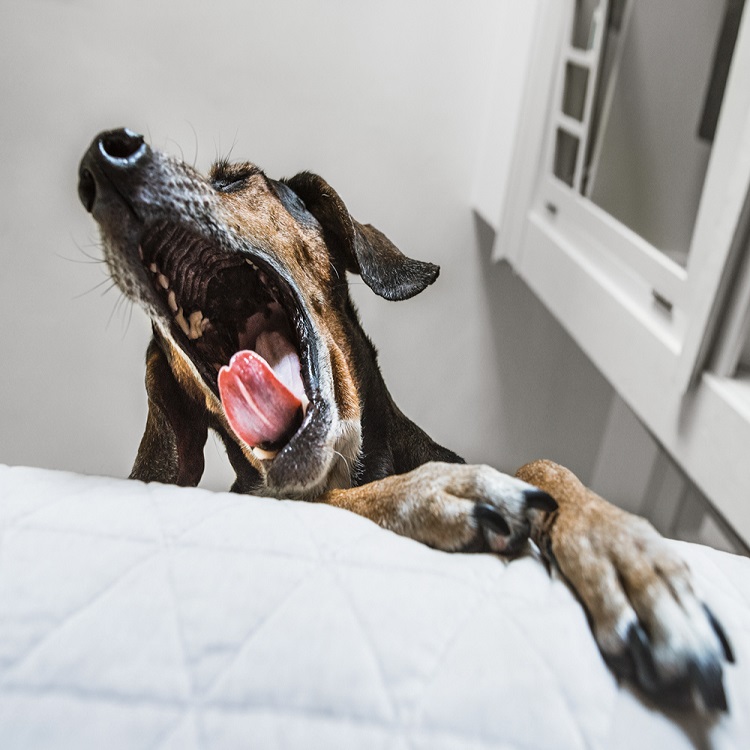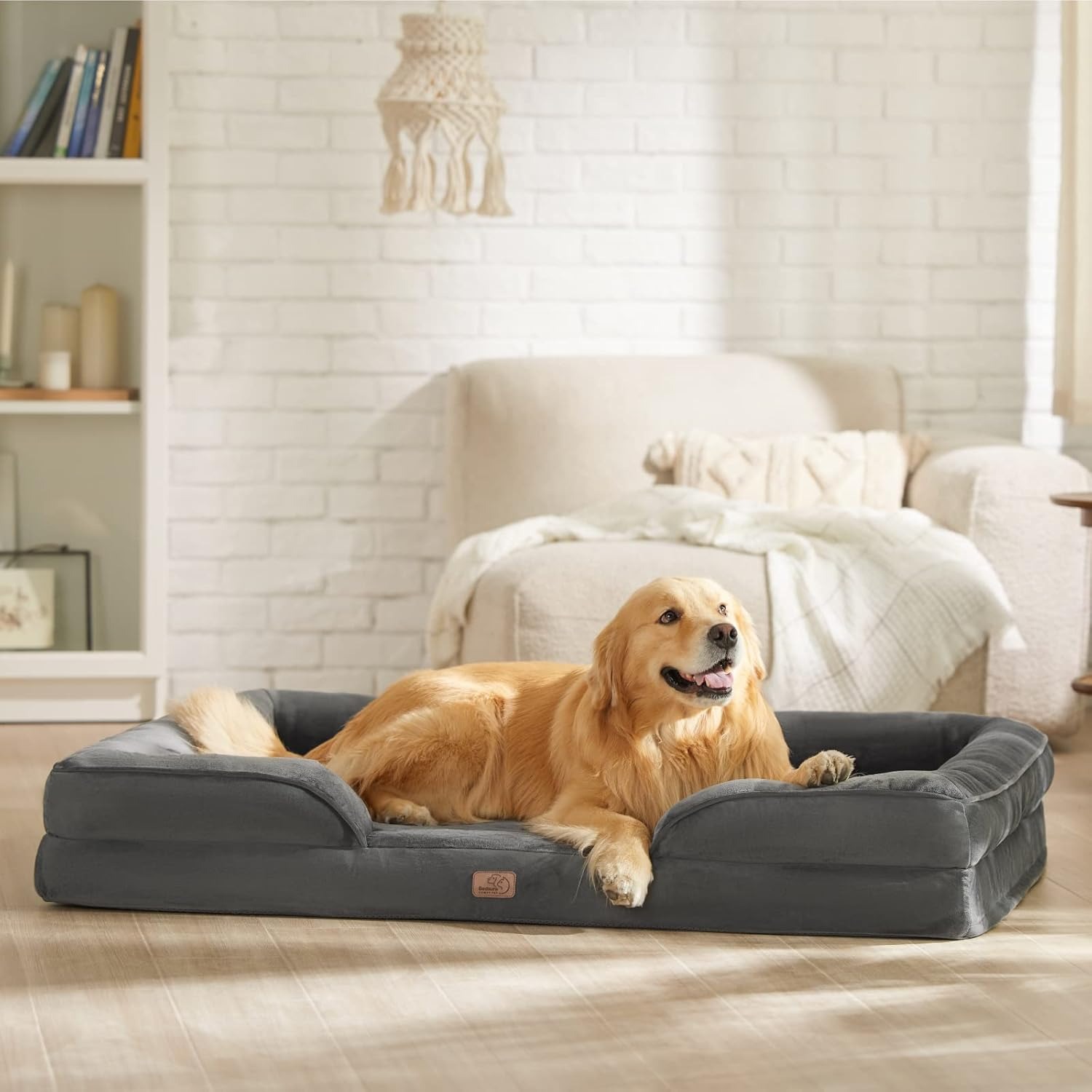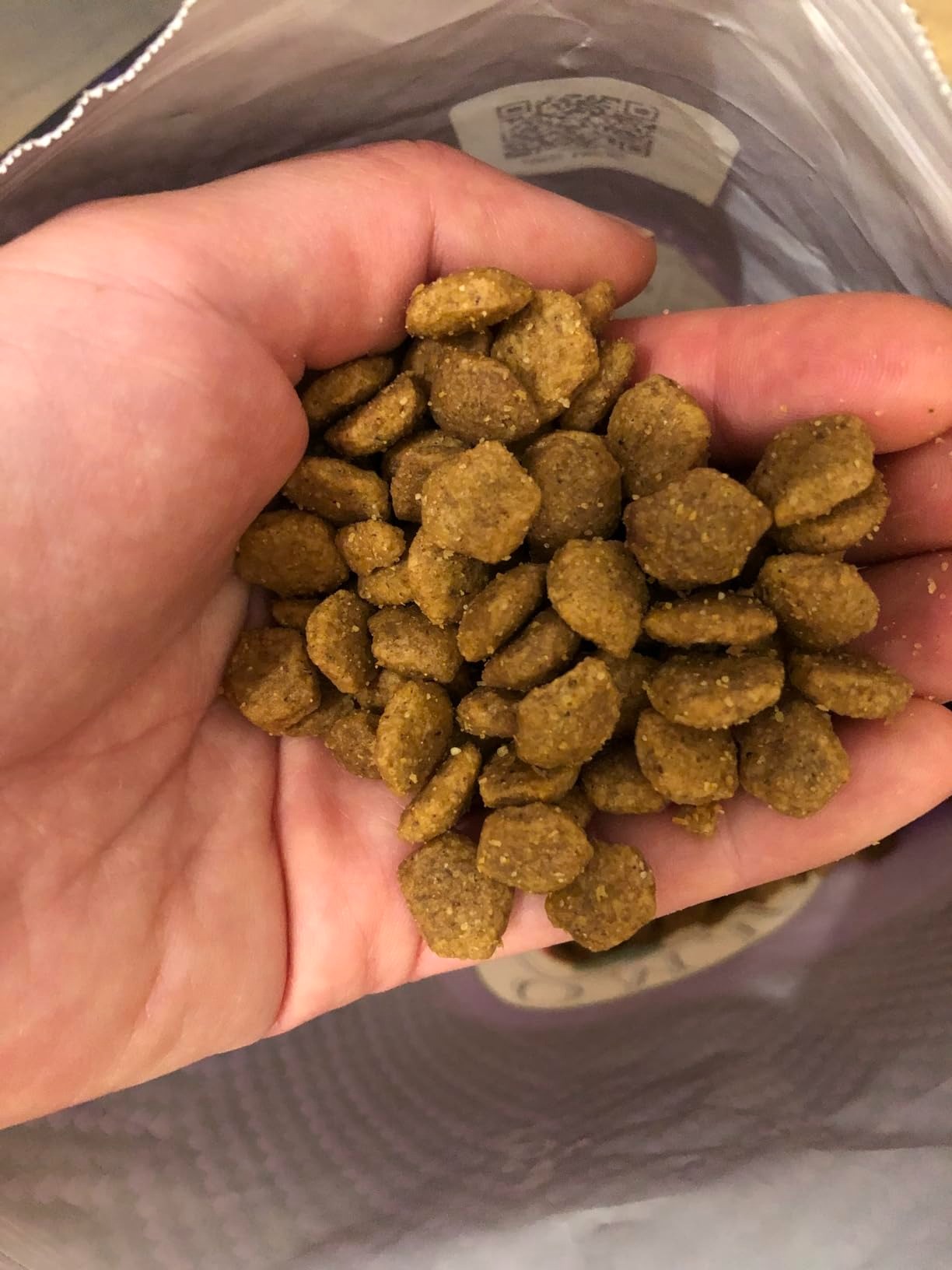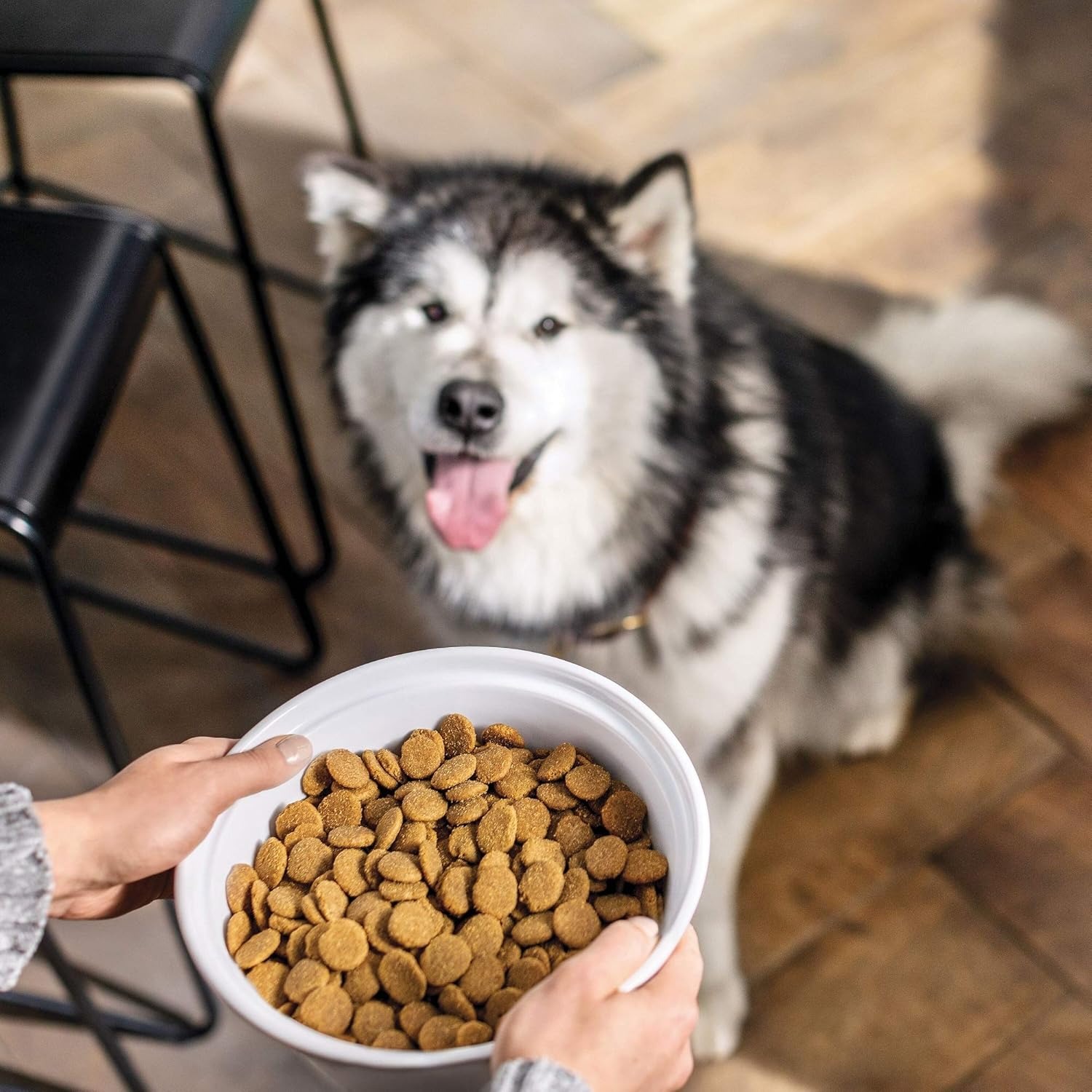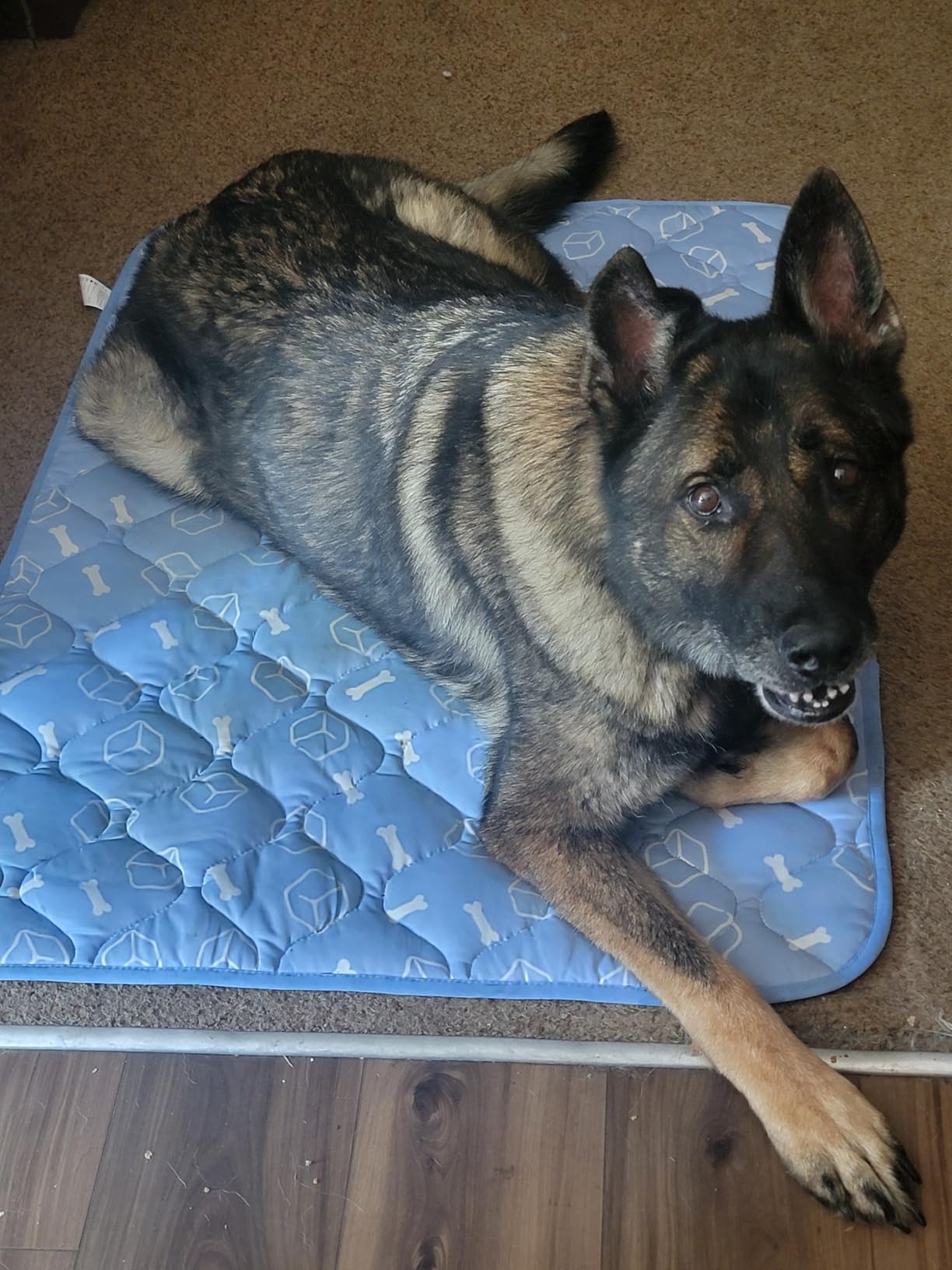Overview of Kennel Cough
Definition and Causes
Kennel cough, also known as infectious tracheobronchial, is a respiratory disease in dogs. It is caused by various viruses and bacteria, including Bordetella bronchiseptica and the canine parainfluenza virus. These pathogens attack a dog’s respiratory tract, leading to inflammation and irritation in the throat and airways.
Contagious Nature and Spread
Kennel cough is highly contagious. It spreads quickly in environments where dogs are close together. The disease transmits through airborne droplets when an infected dog coughs. It can also spread by direct contact with infected dogs or through contaminated surfaces like toys and bowls. Places like kennels, dog parks, and doggy daycare centers are high-risk areas for transmission.

Identifying Symptoms of Kennel Cough
Identifying the symptoms of kennel cough early is crucial for prompt and effective treatment.
Common Signs in Dogs
Dogs with kennels cough typically exhibit a dry, hacking cough that can sound like something is stuck in their throat. Other signs may include a runny nose, sneezing, lethargy, and a reduced appetite. It’s also common for affected dogs to cough up a white, frothy phlegm.
Comparing Kennel Cough with Other Respiratory Issues
Kennel cough symptoms are somewhat similar to those of other respiratory diseases in dogs. However, a distinct feature is its abrupt and persistent cough. Unlike conditions like pneumonia or canine influenza, kennels cough usually doesn’t cause high fever or significant behavioral changes. Always consult a vet to differentiate kennels cough from more severe conditions.
Transmission of Kennel Cough
Understanding how kennel cough spreads is vital to prevent outbreaks. It is similar to how colds transmit in humans.
How Dogs Contract Kennel Cough
Dogs catch kennels cough when they inhale bacteria or virus particles. This can happen through:
- Direct contact with infected dogs
- Sharing water bowls or toys with sick dogs
- Breathing in droplets from an infected dog’s cough
These tiny particles invade a dog’s respiratory tract. Once there, they cause irritation and inflammation.
High-Risk Environments for Transmission
Places where dogs gather increase kennel cough risk. These include:
- Kennels and boarding facilities
- Dog parks
- Doggy daycares
- Grooming salons
- Training classes
Avoiding such areas during outbreaks is smart. Regular cleaning of shared items also helps reduce risk. If your dog must visit these places, ensure they have proper vaccinations.
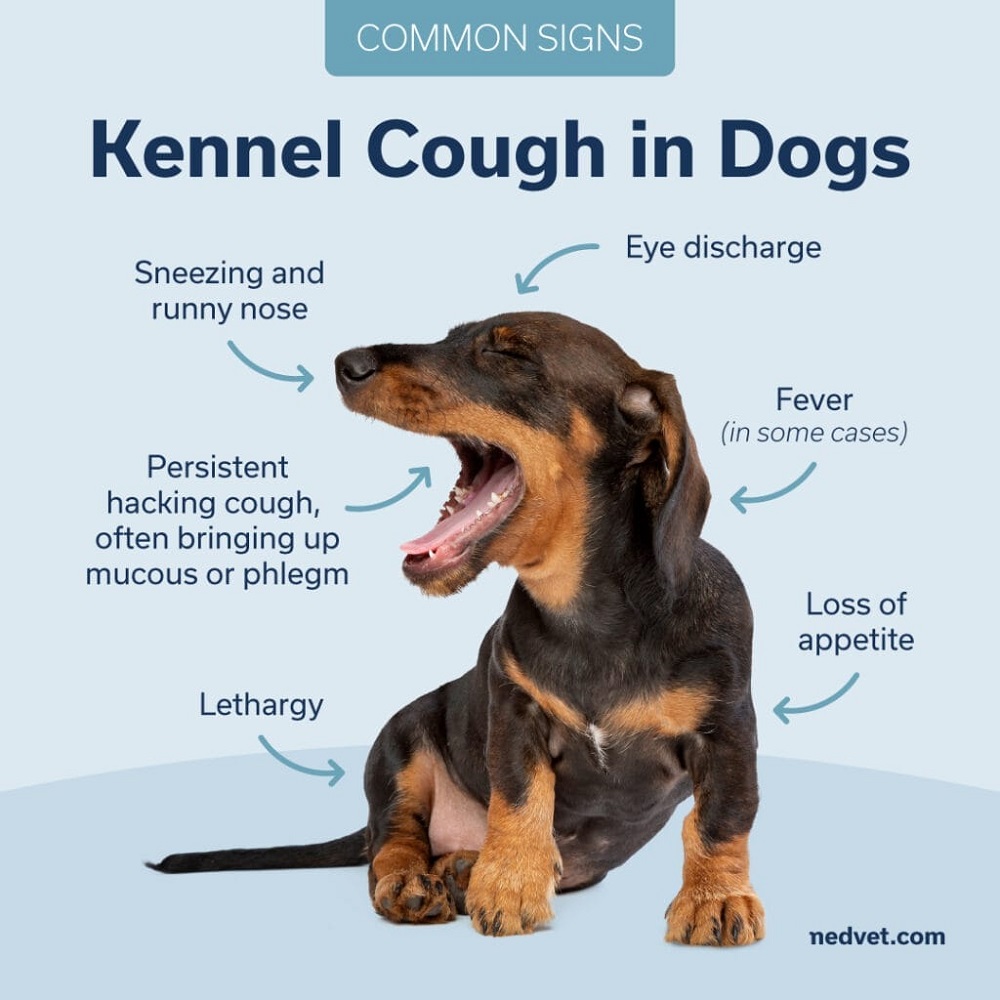
Treatment Options for Kennel Cough
When your dog is coughing and showing kennels cough symptoms, you’ll likely worry about treatment. Here’s how you can help your furry friend at home and understand when to call the vet.
Home Care Recommendations
Caring for a dog with kennel cough involves a few simple home remedies. First, ensure they rest in a stress-free environment. Avoid using a collar that can irritate their throat; a harness is a better choice for walks. Provide fresh water to keep your dog hydrated. Steam from a hot shower can also ease their breathing. Lastly, keep routines calm to avoid exciting your dog, which can trigger coughing.
When to Seek Veterinary Care
Most cases of kennel cough are mild, but watch for signs needing a vet’s attention. If your dog’s cough grows worse, or they stop eating, have less energy, or show a fever, call your vet. More serious infections might need antibiotics or other medications. If your dog has a history of health issues, consult your vet early on. Puppies, senior dogs, or those with weak immune systems also need quicker vet care. They can face higher risks from kennels cough complications.
Prevention Strategies
Ensuring your dog is protected against kennel cough involves a combination of vaccinations and minimizing their exposure to risky environments.
Vaccination and Its Effectiveness
Vaccination is a key element in preventing kennel cough. Dogs can receive a vaccine that targets the Bordetella bacterium, one of the primary causes of kennels cough. The effectiveness of the vaccine varies, as kennel cough can be caused by a range of pathogens. However, vaccinated dogs often experience milder symptoms and quicker recovery times if they do contract the disease. It’s important to note that the vaccine may not entirely prevent kennel cough but is highly recommended for dogs who frequent kennels, dog parks, or doggy daycare.
Managing Exposure to Other Dogs
Reducing your dog’s interaction with potentially infected dogs is another crucial step in prevention. Avoid dog parks or kennels with known outbreaks of kennel cough. Ensure shared toys and bowls are disinfected regularly to prevent the spread of bacteria and viruses. During seasons of high infection rates, consider alternative methods of exercising your dog that involve less contact with other dogs. Regular handwashing after handling other dogs and avoiding close contact between your pet and unfamiliar dogs can also limit the chances of transmission.
By following these strategies, you can significantly decrease the likelihood of your dog contracting kennel cough and maintain their health and happiness.
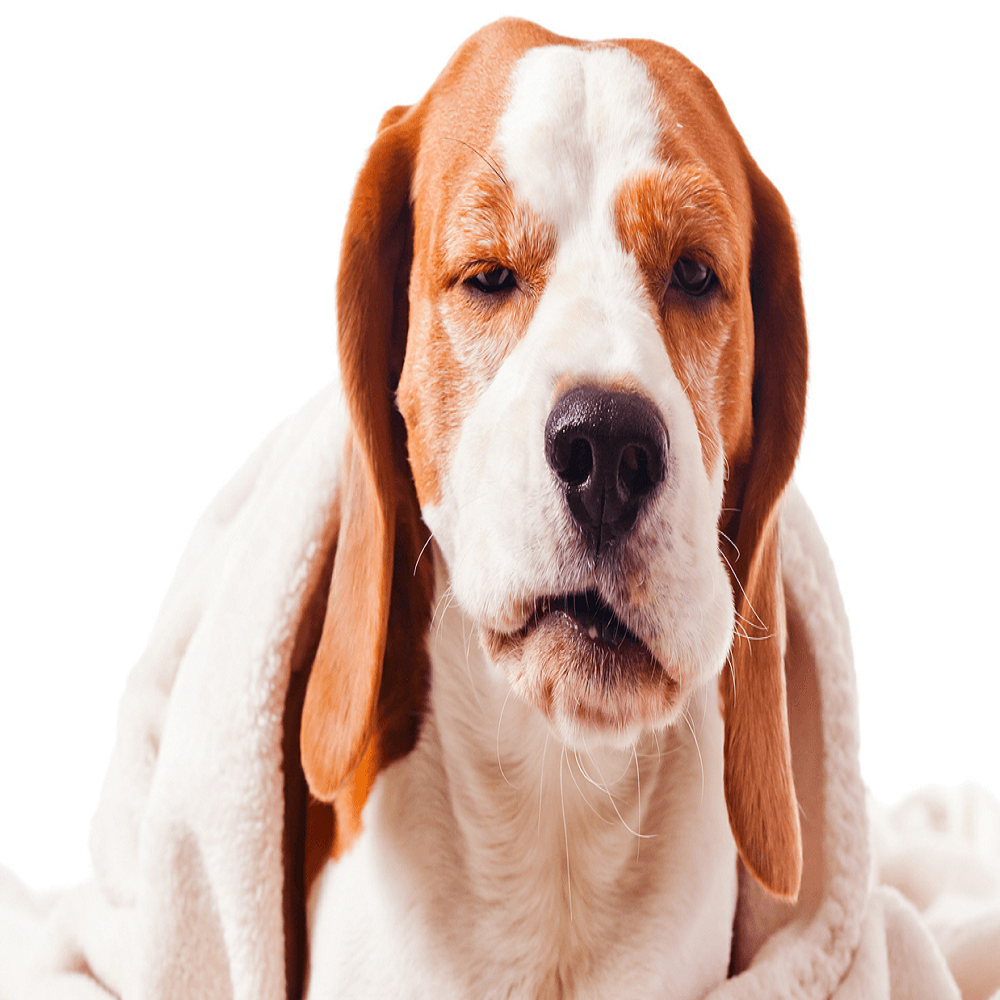
Managing a Dog with Kennel Cough
When your dog shows kennel cough symptoms, immediate care is essential. Here’s what to do.
Isolation and Containment Practices
Keep your sick dog away from others to stop the spread. This means no dog parks or social gatherings where other dogs are present. Use separate bowls and toys for your sick dog to prevent sharing germs. Clean these items regularly.
Monitoring and Managing Symptoms
Watch for changes in your dog’s health. Notice if the cough gets worse or if they seem very tired. Offer lots of water and encourage your dog to rest. Use a harness instead of a collar to ease throat pressure. If symptoms don’t improve within a week, contact your vet for more advice. Dogs with kennel cough usually get better with just rest and care. Yet, some may need medicines from a vet. Ensure your dog gets plenty of love and comfy space to recover. Prevent stress as it can make the cough worse. Steer clear of smoke or strong smells that can irritate their airways.
Always clean your hands after touching your dog or their items. Use hot water and soap to kill germs. Limit your sick dog’s contact with people who have weak immune systems.
Importance of Veterinary Diagnosis
Consulting a vet is essential when diagnosing kennel cough.
Distinguishing Kennel Cough from Other Diseases
Many respiratory illnesses can mimic kennels cough symptoms. Vets help rule out other conditions.
Role of Clinical Exams and Tests
A vet may use tests to confirm kennels cough or find other diseases. Clinical exams offer accurate diagnosis.
Recognizing the Signs of Complications
While most dogs recover from kennel cough without incident, it’s important to monitor for signs of complications that may require immediate veterinary attention. These signs can include high fever, lethargy, loss of appetite, or a lack of response to treatment. If your dog begins coughing up blood, has difficulty breathing, or shows signs of distress, seek veterinary care immediately. Early intervention can help mitigate more serious health issues and ensure a smoother recovery process.
The Role of Pet Owners
As a pet owner, it’s your responsibility to act promptly in caring for a dog with kennel cough. This includes observing their behavior, adhering to treatments prescribed by your veterinarian, and taking proactive steps to prevent the spread to other dogs. Being informed about the condition and its management can lead to a better outcome for your pet. Additionally, open communication with your veterinarian will allow you to address any concerns swiftly and ensure your dog receives the best care possible.






